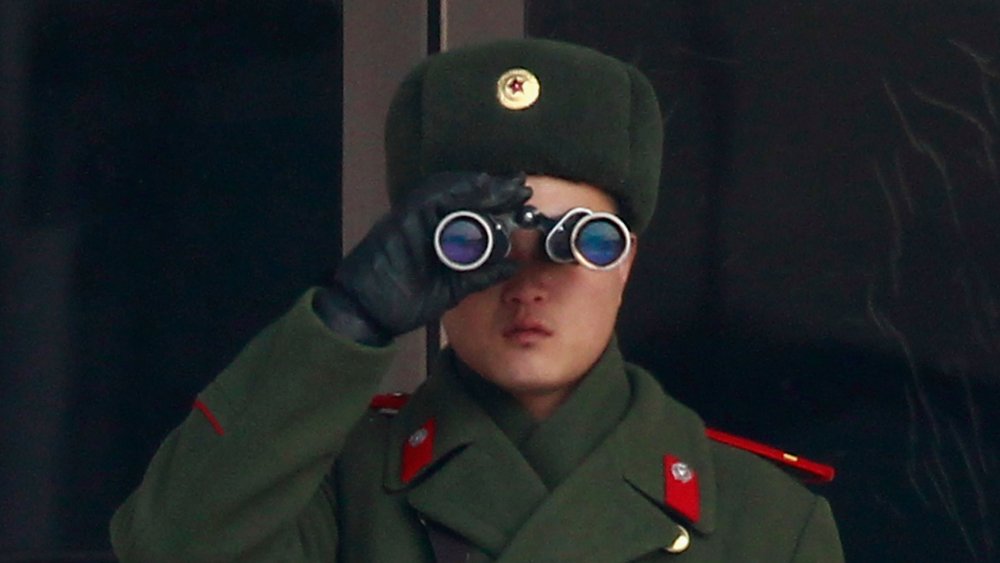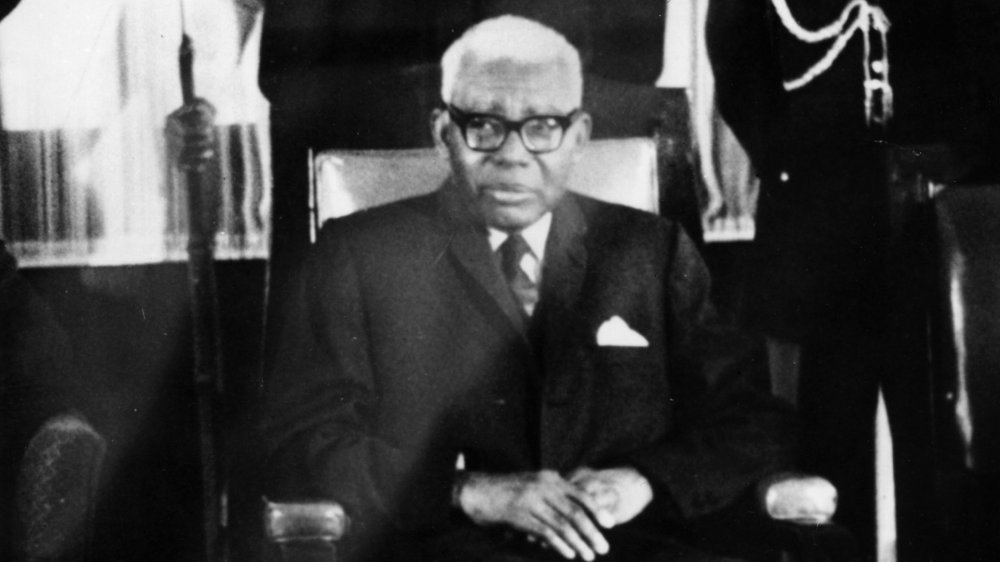The Craziest Ways Dictators Protect Themselves
Do you remember that footage from North Korea around the time that their former leader Kim John Il died, back in 2011? Thousands of ordinary people bawling uncontrollably in the street, with guards pushing the crowds back from the funeral procession? You likely would have found the clips a little strange, but also confusing. Wasn't it true that Jong-Il ran North Korea like a gangster regime, and that his people were bordering on starvation while he and his generals lived in the lap of luxury? Why would the people be mourning such a leader so passionately?
Even in death, it would appear that Jong-Il was capable of ruling his people through fear. According to NBC News, however, this not simply a North Korean quirk, but rather has been the modus operandi of dictators and autocrats throughout history for generations.
"Psychologists and sociologists who study terrorism say dictators are able to spread fear among their people, and place themselves as their only salvation," writes NBC News' Eric Niiler. "Manufacturing an external threat, like Jews to Hitler's Germany, or the entire West for Kim, help keep the society off balance and collectively paranoid as well."
Though it is tempting to conclude that North Koreans sobbed so uncontrollably at Jong-Il's funeral because they felt they had to, the implication is that the figure of a powerful dictator is the only obstacle keeping the populate from utter destruction at the hands of those outside oppressors who are banging at the door. In many cases, dictators rule through instilling in their people a double-fear: of those within, and those –- potentially imaginary -– without.
Strongmen and self-mythology
The image of the strongman as we know it today –- ultra-masculine, combative, authoritarian -– arguably has its origins in a somewhat unexpected psychological flaw: the fragile male ego, a point which psychologists have used as the basis of psychological studies of dictators for decades.
In Psychology Today, James Fallon Ph.D. argues for the common psychopathic basis of many dictators' behaviors and their shared psychological necessity of controlling and manipulating the world an those around them to their own ends. But while brimming with "charisma," "charm," and "self-confidence," which allow such figures to rise to prominence in the first place, it is also true such figures have a fragile sense of self which does not allow for their own failings or limitations, manifesting in delusional attempts to control the narratives of their own lives.
In the case of Kim Jong-Il, this was expressed by state-released claims about the dictator's superhuman abilities across a range of activities. Propaganda included the claim that Jong-Il learned to walk when he was just three weeks old according to CBS News, and also pushed the fact that the leader wrote 1,500 books and six operas in just three years as a university student.
Such outlandish claims may sound half-insane, but they serve the same function as Vladimir Putin's press team staging footage of his diving discoveries: to make the leader appear super-human and beyond reproach. It is perhaps the reason that dictators so often attack the free press.
Paranoia and superstition
Many of those who study dictators as either political commentators or psychological investigators make the point that the reverse side of narcissism is paranoia. These two traits have emerged in an interweaved manner through the behavior of countless dictatorial figures throughout history, going all the way back to Ancient Rome.
"if you are hypersensitive to threats and plots then you can effectively eliminate your [real or imagined] competition," psychology professor Fred Coolidge told the BBC, who refers to the former Haitian president Francois Duvalier (1907-1971) as a case in point. Duvalier's paranoia combined with his voodoo beliefs to form the basis of some highly eccentric and cruel behavior. One given example is Duvalier's claim that he was protected from danger by spirits on the 22nd of each month, which, in later life, meant this was the only day he was willing to leave his palace. More disturbingly, his paranoia also manifested in the order to destroy all black dogs on the island in the belief that one of his political enemies had become one.
The common thread among all dictators is that an inner fragility must repeatedly be concealed by bizarre and sadistic action. The trouble for us nowadays it to recognize this psychology within our public figures before it's too late to stop them.


